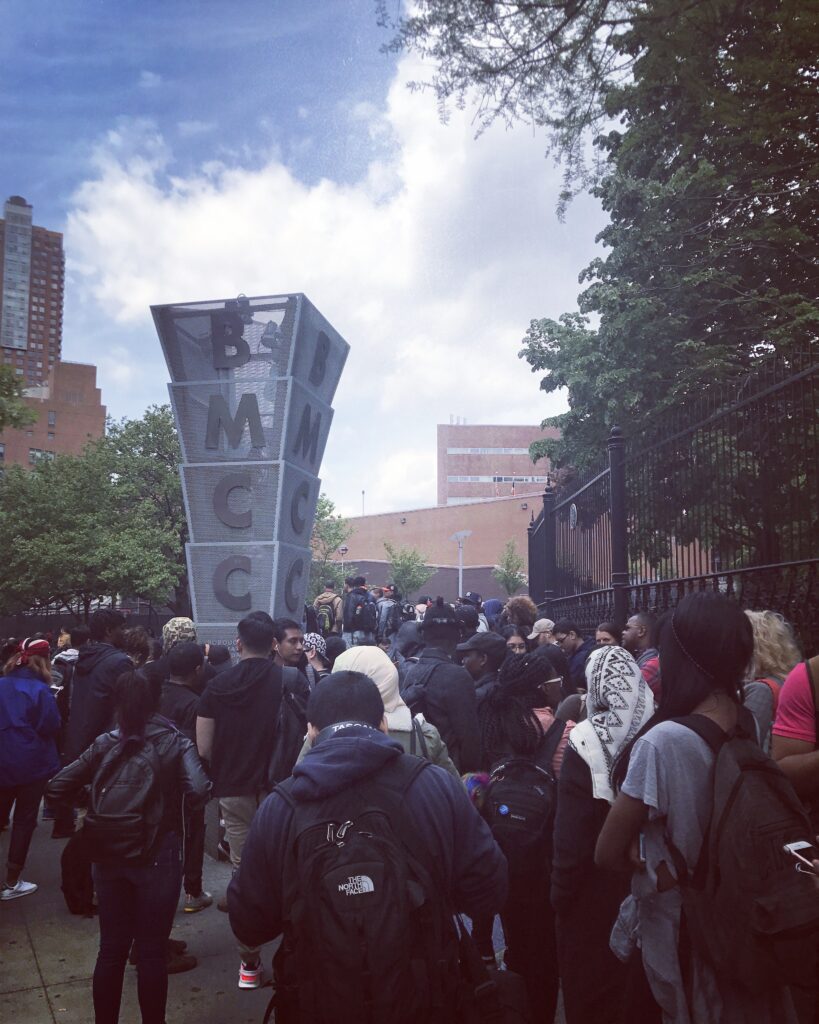A shift from individualism to collectivism can make a great change in a democratic society, especially if it happens in one of its pillars, education. On September 30th, 2020, the Graduate Center of the City University of New York (CUNY), hosted a panel titled, “CHANGE: Making Education More Equitable,” where the sociology professors Tressie McMillan Cottom and Carla Shedd, and the founding director of the Futures Initiative at The Graduate Center Cathy N. Davidson, highlighted major issues present in our education system that include, but are not limited to, economic disparities, unequal funding, and lack or limited public provisioning services like childcare. These issues have become more apparent during the COVID 19 pandemic and the need to solve them is even greater. For this reason, the panelists discussed how these issues can be addressed to make education more equitable. In this reflection inspired by this panel’s interesting discussion, the main focus will be differential funding of educational institutions and the collective well-being of students.
The problem is not that there is no access to higher education institutions, like Professor McMillan Cottom explains, the issue lies in the struggle students have to go through to obtain the resources necessary for them to take advantage of this access. The funding is available to students that meet certain criteria. But many of the things required are not always possible for students that struggle personally, actually need the financial help, and are on the brink of dropping out. This is not only for higher education; public K-12 schools also require differential funding. Professor Shedd says, “As one who believes in institutions, I want to see more funding go to the schools and not be attached to individual people who have to move across boundaries of race, and place, and class, in order to have access to those resources. But instead, fully understand that you can’t equally fund schools that have different needs.” Having public schools and universities with the same financial funding as private ones show how unjust our system can be and that there is an imperative need to establish differential funding. Professors McMillan Cottom and Shedd’s argument show that the diversity of the student body matters. A way to address this issue is to determine the funding based on student body demographics. Doing this would represent a shift from individualism to collectivism. How? Students won’t be struggling with the natural selection of the current education system in which there is a survival of the fittest policy. Instead, they will have even more access to both education and resources.
CUNY is the largest urban university in the United States. Its student’s diversity mirrors New York City’s diverse quality. However, like any other public university of the country, it faces financial struggles as well as the majority of its students. Prof. McMillan Cottom also remarks that in the midst of the current pandemic, public universities face the consequences of their institutional frailty. Students, which she describes are typically caregiver women or mothers, struggle with online learning due to multiple factors like the lack or limitation of public provisioning services. Why can’t this change? What prevents funding from going to the people that really need it? Is it perhaps that individualism is blindfolding the needs of a community? The goal should be the collective well-being of students. However, as Professor Sheed remarks, this is not in the educational institutions alone. The entire system should address the needs of those who are not well-off and change the policies that just add on to more discrimination, socio-economic disparities, and stagnation. A great concern is that the issues that prevent education from being more equitable don’t get addressed because the ones in power don’t consider our reason’s for demanding this change enough. The resources are available, but they are not where they should be. We need distributive justice, we need to change our policies, and we need to make our voices be heard.
How can we become part of the solution? If you run a club or belong to one, find and share information about financial aid like grants, scholarships, paid internships, among others, and the services available at your college. Sharing these resources will help students that are not aware of their existence and need them. Also, share the information on your classes and with your friends. We need to advocate for a change in the restricted policy of some of these resources. Reach out to the departments, faculty members, staff, the source of the resources, and any other that could help you achieve this goal. Encourage others to do the same. Our individual power might be limited to a certain extent, but as a community that is looking out for education equity, the benefit and well-being of all students collectively, and a more just society we can go great things. The criteria are not written in stone. They, with enough people, might change, and is worth trying to shape a society that is fair for everyone. I will do my part and I invite you to be part of the change.



